- Home
- slideshows
- miscellaneous
- The life of Hunter Biden: How Joe Biden's son went went from controversy to conspiracy
The life of Hunter Biden: How Joe Biden's son went went from controversy to conspiracy
Biden's sons were well-known fixtures in his public life since they were children.

Hunter followed in his father's political footsteps and worked his way up in Washington.
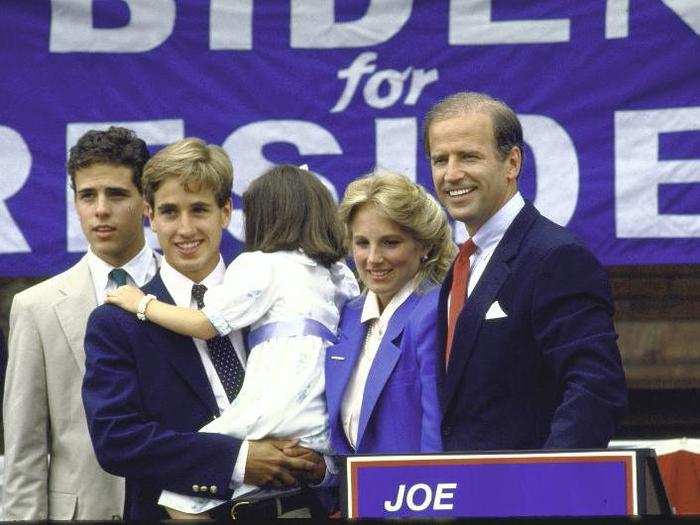
Hunter studied at Georgetown University and graduated in 1992. It was while earning his undergraduate history degree that he began to differ from his teetotaler father as he began to ramp up his social drinking habit into smoking Marlboro Reds and occasionally using cocaine, according to a 2019 interview with The New Yorker.
After graduation, he spent a year in the Jesuit Volunteer Corps, working in Portland, Oregon before earning a Juris Doctor from Yale Law School in 1996.
In 1997, Hunter returned to the family's roots in Wilmington, Delaware, where he began a career that immediately caused conflict of interest questions.

Hunter bought a historic estate in Wilmington in 1997, where he lived with his wife, young daughters, and brother Beau. He assumed a role as an executive vice-president at MBNA bank, but later said he disliked the stiff corporate culture.
"If you forgot to wear your MBNA lapel pin, someone would stop you in the halls," he later told The New Yorker.
His role at the bank raised eyebrows as MBNA was known as a massive donor to several of Joe Biden's campaigns over the years, but he stayed with the company for nearly five years.
In 1998, he reached out to William Oldaker, a Washington, D.C.-based lawyer who had worked on Joe Biden's 1987 presidential campaign about getting a job in President Bill Clinton's administration, according to The New Yorker.
Hunter flexed his connections and rose up the ranks in the Washington scene.
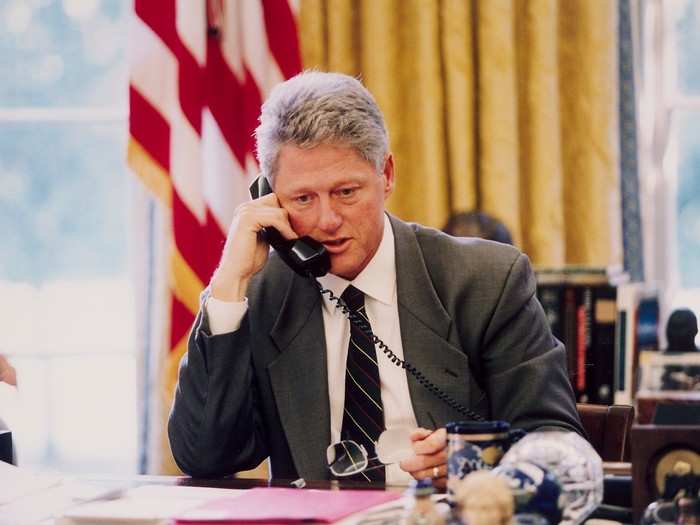
Oldaker connected Hunter with Commerce Secretary William Daley, who had worked with Joe Biden and bonded with Hunter over being from political families, according to The New Yorker.
Hunter was then appointed to the department by President Bill Clinton and served from 1998 to 2001 as a director in the Department of Commerce focusing on e-commerce policy issues.
Hunter moved his young family to a tony Washington, D.C. neighborhood for the role, where he began to establish himself as a D.C. player, even though he later revealed his salary barely covered the family's house, the children's schooling and living expenses that kept them in pace with high D.C. society.
From 2001 to 2008, he worked at Oldaker, Biden, and Belair, LLP, a federal lobbyist firm he co-founded but resigned to preserve the optics of his father's campaign.
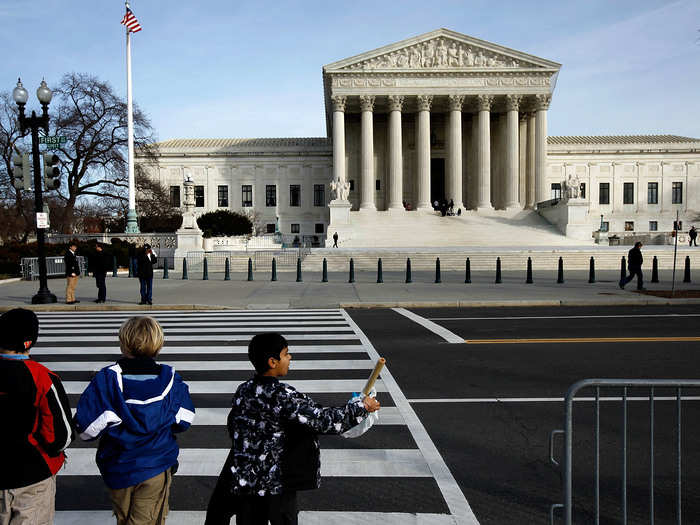
CNN reports that Hunter resigned from the firm when then-Sen. Barack Obama, who said he would refuse donations from lobbyists, asked Joe Biden to join his presidential ticket.
Hunter later told The New Yorker that no one from the Obama campaign had directly told him to break his lobbying ties, but that he knew "the writing was on the wall," so he resigned from the firm and from an unpaid seat on Amtrak board in preparation for the election.
"I wanted my father to have a clean slate," Hunter told the outlet. "I didn't want to limit him in any way."
As his father found his place at the top of Washington, Hunter launched several new business efforts that raised eyebrows.
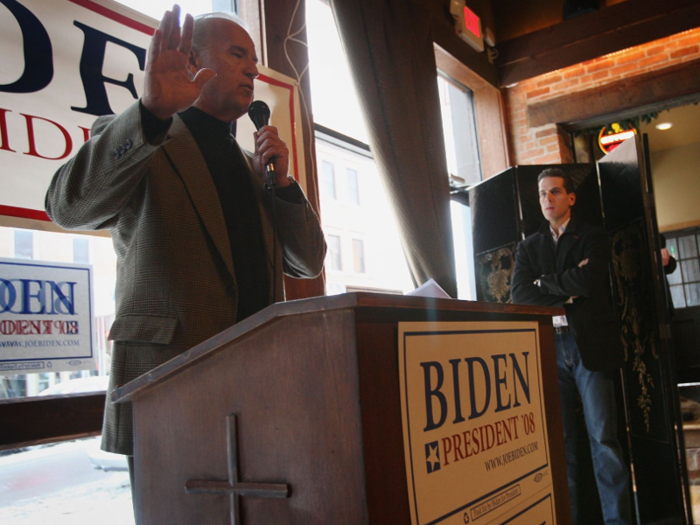
In September 2008, Hunter launched a consulting firm, Seneca Global Advisors, and in June 2009, Hunter co-founded private equity firm Rosemont Seneca Partners. The New Yorker noted that through his companies and his partners Hunter established various business connections to figures in China and Russia.
His blooming international business relationships came to a head with his father's policy priorities in cracking down on corruption in Ukraine, but he was not accused of any formal wrongdoing.
Into adulthood, Hunter became known for his tumultuous personal life.
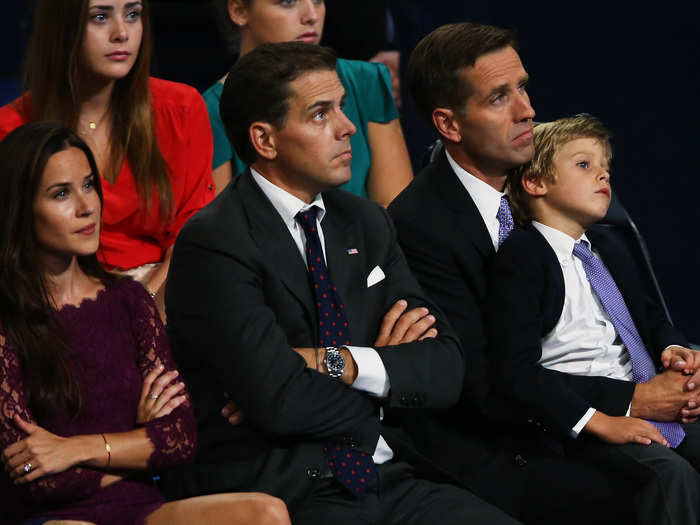
Hunter's tumultuous personal life became tabloid fodder during and after his father's time with the administration.
Biden sparked confusion when the then-44-year-old enlisted in the Navy Reserves in 2012, less than two years before reports broke that the Reserve discharged Hunter in 2014 after he tested positive for cocaine.
Biden eventually confirmed the news and said in a statement that it was "the honor of my life to serve in the U.S. Navy, and I deeply regret and am embarrassed that my actions led to my administrative discharge. I respect the Navy's decision. With the love and support of my family, I'm moving forward."
After tragedy struck the family through 46-year-old Beau's death from cancer in 2015, Hunter's personal life remained in the headlines.
After he divorced his first wife and the mother of his three daughters Kathleen, the Biden family acknowledged he was dating Hallie Biden, Beau's widow.
Hunter raised eyebrows with a candid New Yorker interview in which he said he spent the aftermath of his brother's death on a bender that included him buying crack from homeless people. He also said that he and Hallie discovered they were "sharing a very specific grief" and spent a lot of time together in 2016, before they became a couple.
The couple apparently tried to keep the relationship secret, but the former vice president found out when Page Six called him for comment on a story on the relationship, after which he and Jill issued a supportive statement.
"We are all lucky that Hunter and Hallie found each other as they were putting their lives together again after such sadness," the statement said. "They have mine and Jill's full and complete support and we are happy for them."
It's unclear when Hunter and Hallie Biden stopped dating, but their breakup was reported in early May, shortly before TMZ reported the "secret" wedding between Hunter and South African model Melissa Cohen, which happened on May 16.
Despite his personal affairs, Hunter's biggest public troubles came from questions into his business dealings.
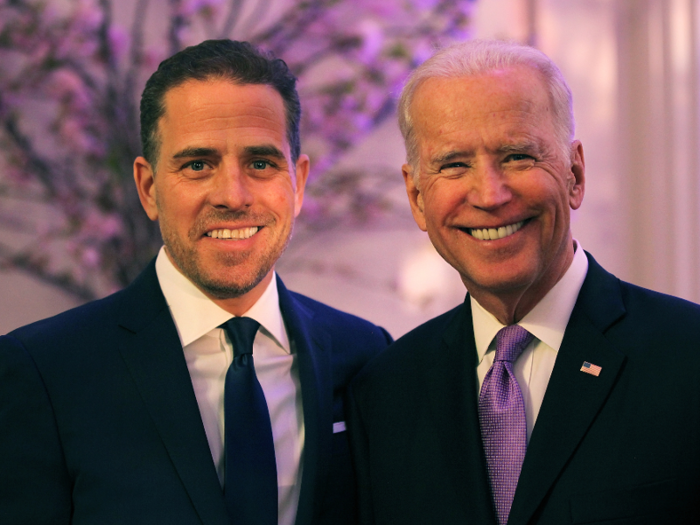
In May 2014, Hunter signed on as a board member of Burisma Holdings, Ukraine's largest gas production company. Hunter found the company through his business contacts at a controversial time, and as part of the board's anti-corruption efforts, he recommended the law firm Boies Schiller Flexner, where he was "a counsel."
A press release announced upon Hunter's hiring said he was in charge of the company's international legal relations with different companies, but Biden later denied that characterization.
The appointment caused concerns as it came at a tense time between the White House and Russia over Ukraine and its energy dependence, sparking criticism that Hunter's role with the energy giant was a blatant conflict of interest.
But the Bidens dismissed the controversy, telling media outlets that Hunter is a private citizen and his business interests don't represent or affect the views of the government.
The controversy was revived nearly five years later.
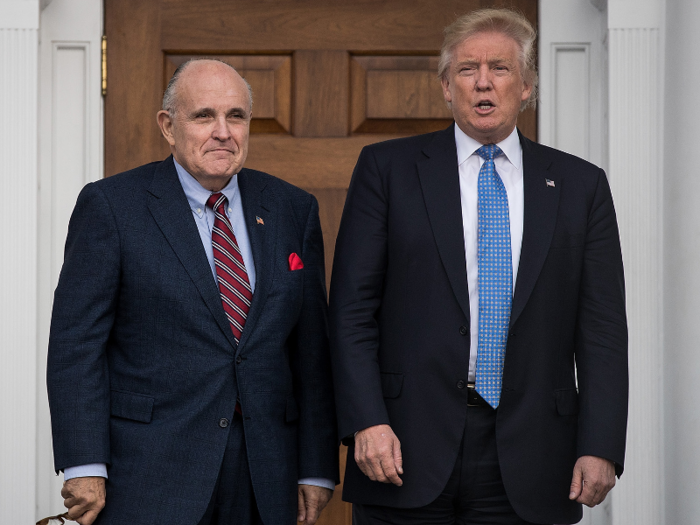
Within one month of when his term on the board expired, a bombshell New York Times story published on May 1, 2019 detailed Biden and Hunter's ties to Ukraine and revealed that the former vice president had successfully gotten a Ukrainian prosecutor removed from office.
The move raised questions about a possible conflict of interest and if Biden was trying to shield his son from an investigation into the company, whose founder faced multiple investigations into alleged tax evasion and money laundering.
The vice president was reported to be just one part of a larger push coming from former President Obama's administration for the Ukrainian prosecutor Viktor Shokin to be removed over concerns of corruption in his office. Biden has since publicly detailed his threat to withhold $1 billion in loan guarantees from the country if Shokin wasn't fired.
However, it's since been reported that there was not an active investigation into Hunter when the former vice president made the push for Shokin's firing, and Yuriy Lutsenko, Ukraine's prosecutor general, later said that he had no evidence of wrongdoing against either Biden.
Despite the absence of proven wrongdoing by the Bidens, the back-and-forth has been used by the administration to obscure Giuliani's communications with Ukraine that were made public earlier this year and the growing concern that Trump actively collaborated with a foreign power to gain political leverage.
Read more: The Joe and Hunter Biden Ukraine investigation, explained
Popular Right Now
Popular Keywords
Advertisement